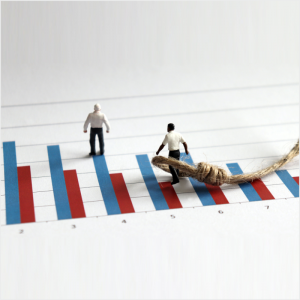
“That’s not fair”! …”What do they think of themselves”? …”Not again”! …”Transparency my foot”! …”Why can’t they practice what they preach”? …“Oh that blue-eyed boy again”! Well, walk corridors of corporate, and you will surely come across these words and phrases which are uttered in hushed tone and are still audible due to the sheer frustration behind the voice. And rather than reflecting lack of employee-engagement, they reflect a major cause of it.
In an era where the average tenure of a professional is continuously falling, and more employees are less engaged, managers and leaders can ill afford to let bias and unfairness intrude their behavior and decisions. And what’s worse is that even mere perception of it can have a damaging effect on workplace morale. Before we discuss this point in details, watch this video to get the gist of what we are discussing, why it is important, and how it is relevant in professional and personal context…
Yes, irrespective of age, gender or status, every person wants that they should be treated in an unbiased way, there is no prejudice in the behavior towards them, and if some norms are applied on them then there should not be a different set of rules for others. Specially, lack of congruence between declared values and actual behavior of authority figures leads to disappointment in people’s minds. And if they feel that due to that unjustified behavior, allocation of resources is getting affected then it leads to even more angst. Well, like for any behavior, the root of this point lies in neuroscience.
If we will look at our brain then we will find that whenever we come across a behavior that is mean, biased or unfair then there is activation in a particular brain-part called Insula. This part usually gets activated in an intense emotion like disgust. In other words, whenever we sense lack of fairness, our brain generates a threat response of avoidance or repulsion. If team-members of a leader feel this threat response, there will be a decline in their sense of belonging towards company as well as in their productivity.
Moreover, when people consider someone as an unfair person, they don’t feel empathy for that person. Thus, the juniors will not only feel disappointed, but will make others cynical and feel vengeance towards the senior. It will affect every stakeholder adversely. To acknowledge this and do the needful, social & emotional intelligence is required. This ‘emotional & social intelligence’ is a lot about one’s understanding of the design and functioning of human brain, and how they influence our behaviors and choices.
This coming together of neuroscience and psychology builds the foundation for developing emotional & social intelligence – the skill of managing self and connecting with others. Yes, this keystone-skill of all intrapersonal & interpersonal skills can be learnt, practiced and mastered. However, it all begins with some important realizations like…“We all like to be treated fairly”.
Dr. Sandeep Atre
‘Emotional & Social Intelligence’ Expert
Founder – Socialigence
Note: Socialigence (www.socialigence.net) offers self-paced video-based online course on ‘Social & Emotional Intelligence’ with content that has relevance across the globe, and delivery specifically customized according to the work-scenarios in India.
